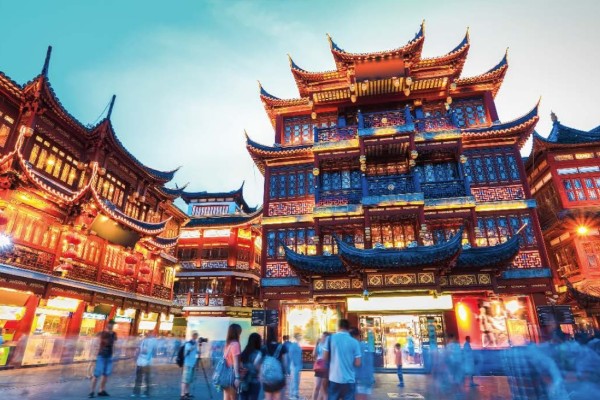Illegal Practices in Prize-giving Sales and the Corresponding Legal Responsibilities by Edward Huang
A common practice and frequently used marketing/sales tool is offering customers a prize incentive with the sale of a product or service. This article outlines some typical illegal practices of prize-giving sales and the corresponding legal responsibilities that should be adhered to.
Based on Anti-unfair Competition Law and regulations on Banning Unfair Competition in Prize-giving Sales, outlined below are the commonly-seen illegal practices in prize-giving sales and the corresponding laws that should be adhered to:
1. Deceitful Prize-Giving Sales.
Regulations on Banning Unfair Competition in Prize-giving Sales promulgated by the State Administration of Industry and Commerce makes the following prescriptions in Article 3: “(1) Lie about having prize-giving sales or about the probability, highest prize money, total prize money, prize categories, quantity, quality, etc. (2) Play tricks to appoint prize-winners beforehand. (3) Purposely not put prize goods or winning tickets on the market, or not put prize goods or winning tickets together with other goods or tickets simultaneously on the market; purposely put prize goods or lottery tickets with different prize money on the market at different times. Deceitful prize-giving sales refer to the operator’s practice of lying about having prizes or purposely appointing prize-winners.”
"Such practice can harm the order of fair competition, putting others who perform legal sales at a disadvantage."
In such practice, the operator offers the consumers with a prize or prize money to incentivise a purchase; however no consumers can actually access the prize or prize money. On the one hand, such deceitful prize-giving sales harm consumers’ interests as consumers have the right to redeem their prize(s), and operators have the obligation to give the prize when delivering the purchased goods or services. On the other hand, such practice can harm the order of fair competition, putting others who perform legal sales at a disadvantage.
2. Promotion of Low-Quality High-Price Goods.
Regulations make the following prescriptions in Article 5: “The operator shall not promote low-quality high-price goods through the means of prize-giving sales. ‘Low-quality high-price goods’ is identified by AICs based on the price and quality of the same goods on the market in the same period, as well as on consumers’ complaints. Other authorities shall assist in such identification when necessary. ”
The practice of selling low-quality high-price goods is unfortunately common in daily life, and the nature of this approach raises prices and sets out to deceive the consumer. Shoddy goods are promoted with the bait of prize-giving sales.
3. Provision of a Grand Prize.
Regulations make the following prescription on the maximum prize value in Article 4: “As for lottery prize-giving sales, the maximum prize value shall not exceed RMB 5000. If the prize is in the form of goods or other economic benefits, their value is calculated according to the price of the same goods or same service on the market in the same period.”
The practice of prize-giving sales with grand prizes is aimed at tempting consumers to take a gamble, potentially diverting them from their original intentions of purchase. Due to the improving living standard of the targeted population, the maximum amount of RMB 5000 may no longer be seen as “enough”, and thus the practice of providing an illegal grand prize amount in prize-giving sales is increasing
4. Non-Expression of the Details of Prize-Giving Sales.
Regulations prescribe the following in Article 6: “In prize-giving sales, the operator shall express to the buyers the prize category, the probability, value, when and how to claim the prize, etc. As for lottery which is not drawn onsite, the operator shall also express to the buyers when, where and how the lottery is drawn as well as when and how the lottery winner will be informed. The preceding contents already expressed to the public shall not be changed.”
In such sales, consumers can easily form the wrong conclusions about the issue of the prize and as a result harm their rights.
Outlined above are four of the most commonly-seen illegal practices in prize-giving sales.
A Look at the Corresponding Legal Liabilities
According to Anti-Unfair Competition Law, supervision authorities shall order the law breaker to stop the illegal practice, and impose a fine between RMB 10,000 to 100,000. In many cases this authority is an Administration of Industry and Commerce (AIC).
The amount of the fine depends on the severity of the illegal act. “Severity” mainly refers to the degree of social harm, which can be measured by the following aspects: scale; period of illegal prize-giving sale; the influence of the sale on the goods; amount of prize; sales volumes, etc.
If the products sold are shoddy or fake, the prize-giving sale may also breach the Trademark Law, Intellectual Property Law, Consumers Rights Protection Law, Food Security Law or even Criminal Law.
Aside from being punished by AICs, operators of illegal prize-giving sales may also receive complaints from consumers for breach of contract. Consumers can, in accordance with General Provisions of Civil Law, seek legal remedies for damages caused by operators’ unfair competitions.
For example, if a consumer wins a grand prize which exceeds RMB 5000, according to the Civil Law, he absolutely can get all the money. In this scenario the fine is still given by the AIC and the prize money can be claimed by the consumer from the seller. This scenario can also lead to a different legal approach, the former one is adjusted by administrative law, and the later one is adjusted by civil law. The consumer has right to ask the operator to meet his commitment (i.e. giving the prize) after he accepts the administrative punishment. Otherwise, the consumer can file a civil litigation against the operator for breach of contract in accordance with law.
"There are many regulations and restrictions in practicing prize-giving sales, and it can be easy for an operator to break
such laws if not aware of the parameters."
There are many regulations and restrictions for the practice of prize-giving sales, and it can be easy for an operator to break such laws if not aware of the parameters. Therefore the occurrence rate of disputes over such sales is high, and necessary for us as legal professionals to be ensure our clients awareness of such related laws and regulations when planning marketing and sales strategies.
Download the full article as a pdf here.

Edward Huang
Trademark Attorney
p. +86 021 5213 5500
e. ehuang@hfgip.com


